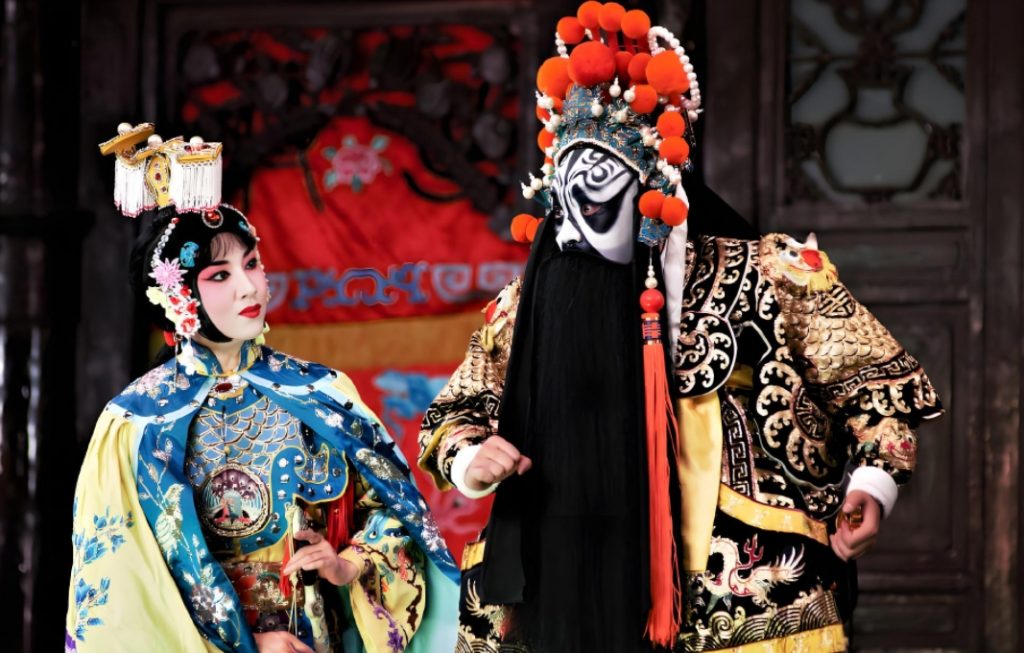The Beijing Opera “Farewell My Concubine” is a classic play deeply loved by audiences, which combines profound historical background, exquisite artistic performance, and profound humanistic connotation.
1、 Background and Source of the Play
Historical Background: The Beijing Opera “Farewell My Concubine” is based on the historical story of the Chu Han conflict in the late Qin and early Han dynasties. It tells the tragic story of the Western Chu tyrant Xiang Yu and his beloved concubine Yu Ji being besieged by the Han army at Gaixia. In the end, Yu Ji committed suicide with a sword to relieve Xiang Yu’s worries.
Script source: The play was written by Qingyi Jushi based on the Kunqu opera “Qianjin Ji” and “Records of the Grand Historian: Annals of Xiang Yu”. It was later revised, processed, and polished by Qi Rushan, Wu Zhenxiu, and others, and finally named “Farewell My Concubine”.

2、 Plot Summary
The plot revolves around the conflict between Chu and Han. Xiang Yu, who refused to heed advice and insisted on sending troops, was ambushed by Han Xin from all sides near Jiulishan and trapped in Gaixia.
In the camp, Xiang Yu and Yu Ji drank and sang mournful songs. Yu Ji comforted Xiang Yu by dancing and wielding a sword to commit suicide, expressing her unwavering loyalty.
After breaking through the encirclement, Xiang Yu fled to the Wujiang River and committed suicide by the riverbank due to his lack of face to meet the elderly in Jiangdong, ending his tragic life.
3、 Artistic Features
Character development: The drama successfully created distinct character images such as Xiang Yu and Yu Ji. The bravery and tragedy of Xiang Yu, and the loyalty and tenderness of Yu Ji, are all showcased through the superb performances of the actors.
Singing, reciting, doing, and fighting: The Beijing Opera “Farewell My Concubine” fully demonstrates the four basic skills of singing, reciting, doing, and fighting in the art of Beijing Opera. The actors’ singing is high pitched and passionate, their recitation is powerful and resounding, their body movements are beautiful and coordinated, and the martial arts scenes are even more thrilling.
Music and Stage Design: The music design of this drama is infectious and can effectively enhance the atmosphere of the plot. Stage design emphasizes the combination of historical authenticity and artistic expression, presenting the audience with a stage space that is both authentic and aesthetically pleasing.
4、 Social influence and cultural value
Inheritance and Promotion: As one of the classic plays of the Mei School, the Peking Opera “Farewell My Concubine” not only inherits the essence of Peking Opera art, but also promotes this traditional art form through continuous performances and innovations.
Education and Inspiration: The drama conveys the values of loyalty, bravery, sacrifice, and other noble qualities to the audience through the tragic story of Xiang Yu and Yu Ji. At the same time, it also inspires people to cherish peace, oppose war, and pursue a harmonious and stable social life.
5、 Performance situation
The drama has been warmly welcomed and highly praised by the audience since its debut. Whether on the domestic or international stage, ‘Farewell My Concubine’ is one of the representative works of Peking Opera art. In recent years, with the continuous development and promotion of Peking Opera art, “Farewell My Concubine” has frequently appeared on the stage of major theaters, becoming an important bridge connecting Chinese and foreign cultural exchanges.
The Beijing Opera “Farewell My Concubine” has won the love and respect of a large audience with its profound historical background, exquisite artistic performance, and profound humanistic connotation. It is not only an important part of traditional Chinese culture, but also one of the treasures in the world cultural heritage.



